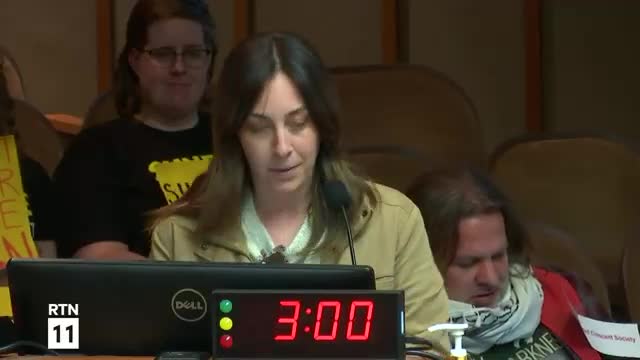Article not found
This article is no longer available. But don't worry—we've gathered other articles that discuss the same topic.
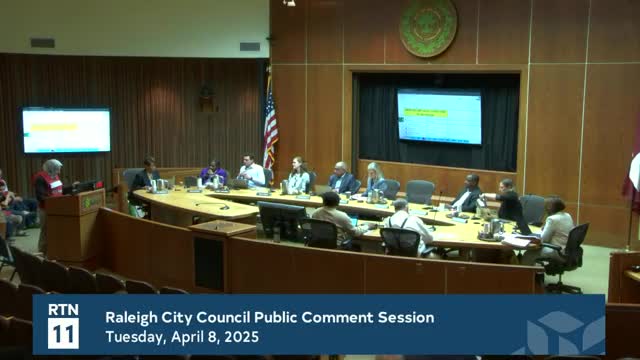
Multiple public commenters urge Raleigh leaders to call for ceasefire and accountability in Gaza
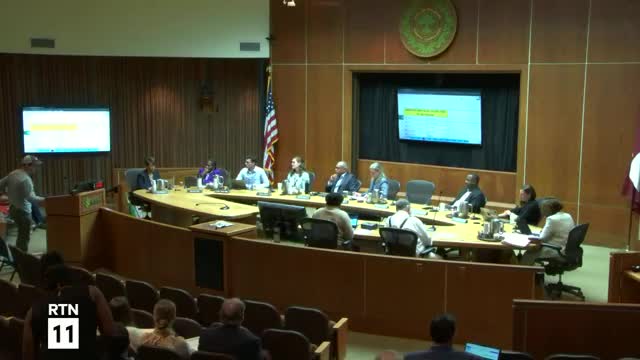
Skateboarders ask Raleigh to designate permanent DIY and public skate spaces
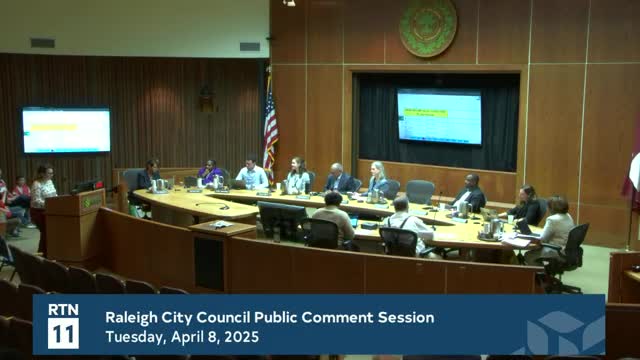
Child-care provider warns of voucher shortfalls, workforce strain
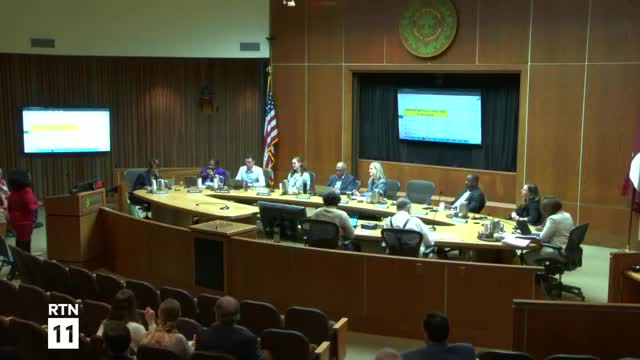
Resident questions role and operations of Housing Appeals Board after merger with Board of Adjustment
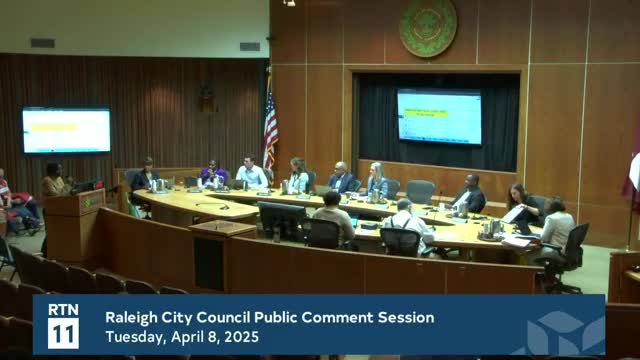
Speakers press council to boost affordable housing funding and require on-site units near transit
